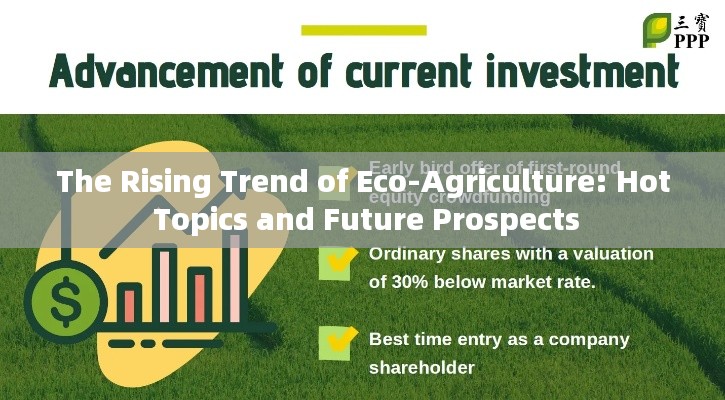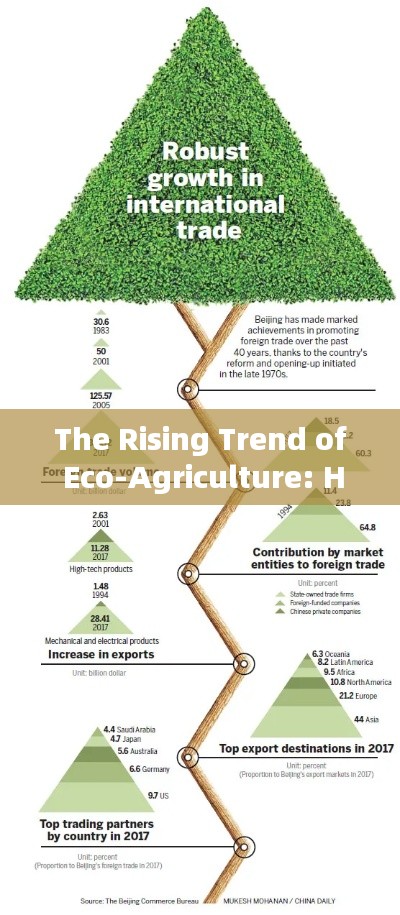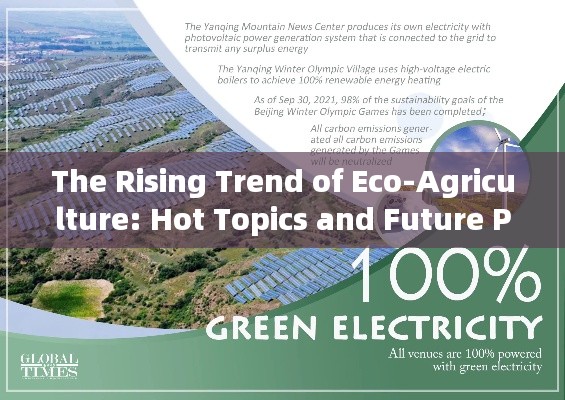The Rising Trend of Eco-Agriculture: Hot Topics and Future Prospects
In recent years, the concept of eco-agriculture has gained significant attention worldwide. As the world grapples with the challenges of climate change, food security, and environmental degradation, eco-agriculture emerges as a beacon of hope. This article delves into the hot topics surrounding eco-agriculture and explores its future prospects.
What is Eco-Agriculture?
Eco-agriculture, also known as sustainable agriculture, is an approach to farming that aims to balance the needs of people and the environment. It emphasizes the use of natural resources, biodiversity conservation, and the reduction of chemical inputs. The primary goal is to ensure long-term productivity and profitability while minimizing negative impacts on the environment.
Hot Topics in Eco-Agriculture
-
Organic Farming Organic farming has gained immense popularity due to its health benefits and environmental sustainability. It involves the use of natural fertilizers, pesticides, and crop rotation methods. Consumers are increasingly seeking organic produce, driving the growth of this sector.
-
Precision Agriculture Precision agriculture utilizes advanced technologies such as GPS, drones, and satellite imagery to optimize farming practices. This approach helps farmers make informed decisions, reduce waste, and increase yields. Precision agriculture is a key component of eco-agriculture, enabling sustainable production.
-
Agroforestry Agroforestry combines agriculture and forestry to create a more sustainable and resilient farming system. By integrating trees and shrubs into agricultural landscapes, farmers can enhance soil fertility, reduce erosion, and increase biodiversity. Agroforestry is gaining traction as a sustainable land management practice.
-
Aquaponics Aquaponics is a closed-loop system that combines aquaculture (fish farming) and hydroponics (soilless farming). This innovative approach allows for the production of both fish and plants in a controlled environment, minimizing water usage and waste. Aquaponics is an emerging eco-agriculture practice with great potential.
-
Community-Supported Agriculture (CSA) CSA is a direct marketing option for farmers and consumers. It involves the sale of locally produced food directly to consumers, often through subscriptions. CSA promotes local food systems, reduces carbon emissions, and fosters community relationships.
Challenges and Opportunities
While eco-agriculture offers numerous benefits, it also faces several challenges. Here are some of the key challenges and opportunities:
-
Transitioning to Eco-Agriculture Transitioning from conventional to eco-agriculture practices can be costly and time-consuming for farmers. However, government subsidies, training programs, and market incentives can facilitate this transition.
-
Technological Advancements Advancements in technology, such as precision agriculture, can help farmers optimize their operations and reduce environmental impacts. Investing in research and development is crucial to harnessing these technologies for eco-agriculture.
-
Consumer Demand Increasing consumer awareness and demand for eco-friendly products can drive the growth of eco-agriculture. Educating consumers about the benefits of eco-agriculture can help shift market dynamics in favor of sustainable farming practices.
-
Policy and Regulation Governments play a vital role in promoting eco-agriculture through policies and regulations. Incentives for sustainable farming, such as tax breaks and subsidies, can encourage farmers to adopt eco-agriculture practices.
Future Prospects
The future of eco-agriculture looks promising, with several factors contributing to its growth:
-
Climate Change As climate change poses significant challenges to traditional farming, eco-agriculture offers a more resilient and sustainable alternative. By adopting eco-agriculture practices, farmers can mitigate the impacts of climate change on their crops and livestock.
-
Population Growth With the world's population expected to reach 10 billion by 2050, the demand for food will increase significantly. Eco-agriculture can help meet this demand while preserving the environment.
-
Technological Innovation Ongoing technological advancements will continue to drive the growth of eco-agriculture. Innovations in precision agriculture, vertical farming, and genetic modification will help farmers produce more with less.
In conclusion, eco-agriculture is a vital component of the future of food production. By addressing the challenges and capitalizing on the opportunities, we can create a more sustainable and resilient food system for generations to come.
The Thrill of Live Sports Coverage: How Technology Brings the Athletics Meet to Your Living Room
The Rise of Trending Mobile Games: A Look into the World of Popular Online Gaming
Decoding the Language of Real-Time Technology: An Overview of Common English Abbreviations
The Unforgettable Appeal of Popular Films: A Journey Through Time and Genre
The Rise of Short-Form Video Content: A Game-Changer in the Video Industry
The Rise of Real-Time Subtitles in English Movies: Bridging the Language Gap
The Importance and Impact of Real-Time Currency Exchange Rates












 鄂ICP备19026574号-1
鄂ICP备19026574号-1